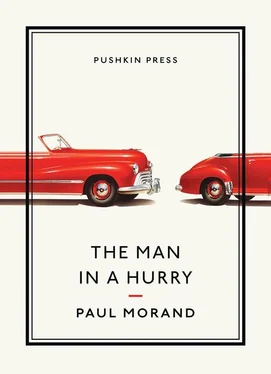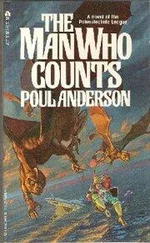“Ah! How many sleepless nights must this dabbler Pierre have cost the collectors!” exclaimed Placide.
He began to discourse on the subject, which for him was inexhaustible.
“The great collections are not forbidding piles of trinkets or featureless graveyards of remains as those who attend the famous auction houses imagine. They live, die, are reborn, they improve, they deteriorate. Some of them disintegrate in a day, like a theory. For the art of vanished ages, and especially the most ancient ones, is as inventive in renewing itself as is the brain of a man of genius; living in the earth and even at the bottom of the seas, buried deep down all over the globe, it bubbles upwards, emerges from the darkness, bursts forth, disconcerts people, shakes them up. It’s a constant revolution, a continuous refining. Each discovery is a provocation that demands a response. Such and such a top-quality Sassanid piece will be greeted in New York harbour like a diva; and it will have been enough for it to appear, not merely because of the pleasure it gives, but in order to downgrade what had given pleasure up till then. Solomon’s temple is rebuilt every day, and taste, which we have wrongly made synonymous with talent, is in a state of perpetual imbalance. It only takes a new site in the civilization of the Indus, or a tear in the centuries-old curtain that conceals the Hittite Empire from us, for a museum, until then highly regarded, to be relegated to the rank of an old second-hand dealer. It only needs a tomb opening up near Pretoria and for the small statue of a sleeping rhinoceros alongside a Bantu skeleton to emerge for telegrams to fly and for chapters of art history and market prices to fluctuate in Buenos Aires, London or Budapest. And, as it happens, Pierre was there in Pretoria,” Placide concluded as he stood up to drink a glass of water.
“Go on, go on,” begged Hedwige.
“But I’m thrilled to continue, madame. I am desirous of pleasing you. Would I not be making myself unworthy of your trust if I failed to retrace the stream of my memory as you have invited me to do?”
Placide listened to himself speaking with as much pleasure as he was listened to. Begun in a tone of amiable nonchalance, the biography was attaining epic status. Placide became so suitably aroused that he eventually managed to paint a portrait of Pierre designed to kindle an imagination that only required a spark. A portrait he regretted because he was jealous of Pierre, but, for once, truth was stronger than malice.
He paused again, but Hedwige pressed him with questions; Pierre had taken part in excavations; had he taken any risks?
“No more than the other archaeologists,” said Placide, screwing up his face. “Of course, in Tse-Kiang, for example, when he was working on the excavation of the famous city built of pieces of Sung pottery that had misfired — imagine that, a city built entirely of Sung vases! A band of Chinese generals captured Pierre and stole his bags of silver dollars. Those are some of the minor misfortunes of a profession that has many high points. In Luristan, for example, at the opening of a Neolithic tomb, when they discovered a funeral cart surrounded by a pack of hunting dogs and forty horses, all intact; a marvellous vision, but a fleeting one, because on contact with the air everything that was made of wood or bone turned to dust, leaving only the bits and pieces, the small bells, the wheel hub — in short, the metal… I also love his story of the skull. Do you know it?”
“No.”
“In a desert in Mongolia he discovered the huge skull of a horse — that of Genghis Khan’s horse, he immediately claimed — a malevolent skull that wreaked ruin and death and which eventually caused their plane to crash. That lucky Pierre was the only survivor of the accident.”
Hedwige shuddered. Delighted to have had such an effect, Placide continued:
“I should also like to tell you of another of our excellent Pierre’s juicy adventures: his forced landing in a district of Baluchistan on a day in Ramadan when any foreigner found out of doors was immediately butcherefd. Did Pierre know this or had he guessed it? — he doesn’t lack for intuition at times — in any case he walked through the entire town, bolt upright, staring straight ahead and as though turned in on himself, with such determination not to be seen or above all lynched, that he passed unnoticed !”
Placide stopped talking, his job was done; Hedwige was no longer listening to him, she was waiting for Pierre.
He entered the room in a whirlwind.
“Quick, Hedwige, I’m taking you with me.”
“What time is it?” asked Hedwige.
“Thanks to you, it’s four o’clock,” replied Pierre, proudly pointing to his watch.
Hedwige had given him as a wedding present a magnificent stopwatch chronometer, with nineteen markers for every hundredth of a second and with adjustable repeaters. It was a symbolic present that was not so much a reward as a good lesson.
Pierre placed a fur-trimmed hat on his wife’s head, wrapped her up in an ocelot fur coat that he had just bought her and that made her look like a maenad (a maenad with her entire head), and whisked her outside.
“Fancy not knowing how to go downstairs on the banister at your age, Hedwige! What, not even on your stomach?”
He lifted her up, making her jump from one landing to another. Hedwige deliberately pressed herself heavily against him. She admired him for always being out in the open, free, daring, tall and quick.
“When I was little, I learnt a La Fontaine fable,” she said. “An eagle that was carrying a tortoise through the air… I remember it very well: the tortoise falls and is about to smash into someone’s skull which the eagle, from up above, took for a pebble.”
“Yes, the skull was that of Aeschylus if I remember correctly. Having a tortoise land on your head! Yet another who would have been killed by slowness,” Pierre sighed.
He hugged Hedwige passionately, much more tightly than was necessary. But Hedwige did not notice, she thought that without him she would fall. In the arms of her husband, it seemed to her that she was flying as in dreams. As she went down the steps, at that very moment, she was dreaming… The eagle in the fable was Pierre; he was taking her, in his talons, on a long hunting trip; she was a poor, bleeding creature beneath his wingspan; he, in a high, audacious, sustained flight, was drawing spirals above the earth, similar to the curves of the labyrinth.
Through the windows of the stairwell, she could see the ground very far away in the distance and the pavement, very far below. She snuggled against him in joyful silence, anticipating some scratches from his royal bird’s claws; she was happy. All she lacked was an injury. Once more the bloody image returned, and remained with her until the foot of the stairs.
THE MAN IN A HURRY had decided to hurry up at last. He would have Hedwige that very night. For almost six weeks he had been deferring the moment. It was over. He would descend onto that fertile plain. He would talk as a prince does; he would help himself to the harvest; he would control, with the full span of his domination, with all the power of his possession, that huge treasure that was Hedwige herself.
Pierre had chosen his moment, chosen it well. The timing was not merely lawful, but legitimate. Hedwige was not only contracted, but bound to him; she appeared loving and willing. She would certainly give of herself entirely: an essential condition of a great friendship, without which marriage is a bedroom as easy of access as prostitution, or a society — a polite society — game.
Pierre was looking forward to this evening, barely a few hours away.
“I’m going to take Hedwige to a restaurant, to a nice restaurant, like the last time. (I hope it will be better than the first time.) Afterwards, we shall go to the theatre. After our unfortunate experience at the cinema, we must give the theatre a chance. There must be some young playwrights who write lively dialogue… Let’s see, what’s showing?… Michel Strogoff… Le Chapeau de paille d’Italie… Tosca… Le Bossu… Les Burgraves… Paris is certainly the centre of a great dramatic renaissance! Ah, here’s something better: La Planche à plonger , at the Mathurins. There must be some activity there. ‘Madly energetic’, say the adverts.”
Читать дальше












